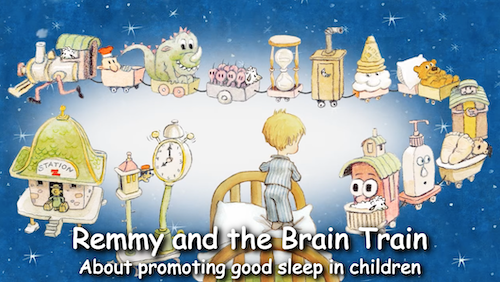Promoting Good Sleep in Children
The Economic Value of a Good Night’s Sleep was one of the first articles I wrote here at Modern Health Talk. It spoke to my frustration after finding a 2011 Harvard study of the economic impact of sleep on corporate workplace productivity, but I found no study of individual benefits. So, I developed a simple computer model using a spreadsheet and some very conservative assumptions that started with one’s first job after college, paying $50K/year. But looking back later, I regret not adjusting the model to explore the value of good sleep in children.
The surprising results of my original model suggest that good sleep could save an estimated $300,000 in medical bills over one’s lifetime, more than $700,000 in increased net worth, and some $8 million in additional lifetime earning capacity. Think of how those benefits could have been accelerated if we promoted good sleep in children from the earliest ages as their young brains are developing and good habits are forming.
 Dr. James B. Maas
Dr. James B. Maas
With that in mind, I introduce you to Dr. James B. Maas, a leading authority and international consultant on sleep performance. Out of sheer luck, I learned that he and I live in the same Del Webb retirement community. He attended a Sleep Wellness class I taught here last week, and I was humbled when he reached out afterwards to say how much he enjoyed it. Dr. Maas has been a sleep expert for 50 years, teaching over 65,000 undergraduates at Cornell University and lecturing all over the world. He has written several books, including Power Sleep, Sleep for Success!, Sleep to Win!, and the one I feature here: Remmy and the Brain Train.
The Brain Train book is an award-winning bedtime story designed to promote good sleep in children and help improve their daytime alertness, mood and performance. Think of the many positive benefits of good sleep that I discussed in my Economic Value article: improved alertness, attention, concentration, creativity, decision-making, endurance, focus, learning ability, mood, reaction & recovery times, stamina, working memory, and more. All of those attributes help people achieve more in school and life.
Starting with infants and toddlers, good sleep improves their learning ability and IQ. For older students, it impacts how much they learn, the grades they earn, what career options are open to them, and what college they get admitted to, as well as whether they get scholarships. Their starting salary would then be higher than in the computer model I did nine years ago. That model started at $50K/year and looked at a lifetime of career advancement, how long we can work before retirement, how much we individually spend on health care, and our lifelong earning capacity.
As I said in What is a Sleep Economist?, I’m convinced that, beyond the individual benefits, the economic value of population sleep wellness, if widely applied with my various proposals, would increase corporate profits, GDP, and global competitiveness; and it would be worth well more than $1 trillion/year. That money could then be applied in all sorts of ways to help society, including cutting taxes, paying down the debt, or investing in education, research, healthcare, and infrastructure.


RELATED ARTICLES & VIDEOS:
Sleep Wellness and Brain Fitness is the class I taught last week in Frisco Lakes, Texas last week. Here’s the recorded video.
Thanks, Norman, for your comment. Since you are writing an article on the Future of Health Care, here are two of my articles that add a different (tech-oriented) perspective:
“Moore’s Law and The FUTURE of Healthcare” is from 2013 but has interesting insights of how tech will impact that future. (mhealthtalk.com/moores-law/)
“COVID-19 Pandemic may be the Biggest MegaTrend of All” is from April 2020. (mhealthtalk.com/megatrend/)
By rare coincidence I just finished reading “Fruit fly study reveals gut’s role in causing death by sleep deprivation” published in Cell and rediscussed by Kevin Jiang in Harvard Medical School publications on June 4, 2020. It fits. I am a 95-year-old Harvard retread currently being revived from stroke and heart problems, finding myself drafted into writing an article on the future of health care (if indeed there is one) and checking out relevant publications that have appeared in during my absence. Yours was most handy, increasing the topics I hope to include (full credits, of course). I like especially your concept of a “sleep economist” – I refer to myself as a “health economist” – it makes a lot of sense particularly in reference to marginalized segments of society whose schedules do not permit adequate and quality sleep patterns. We’ve got to fix that.